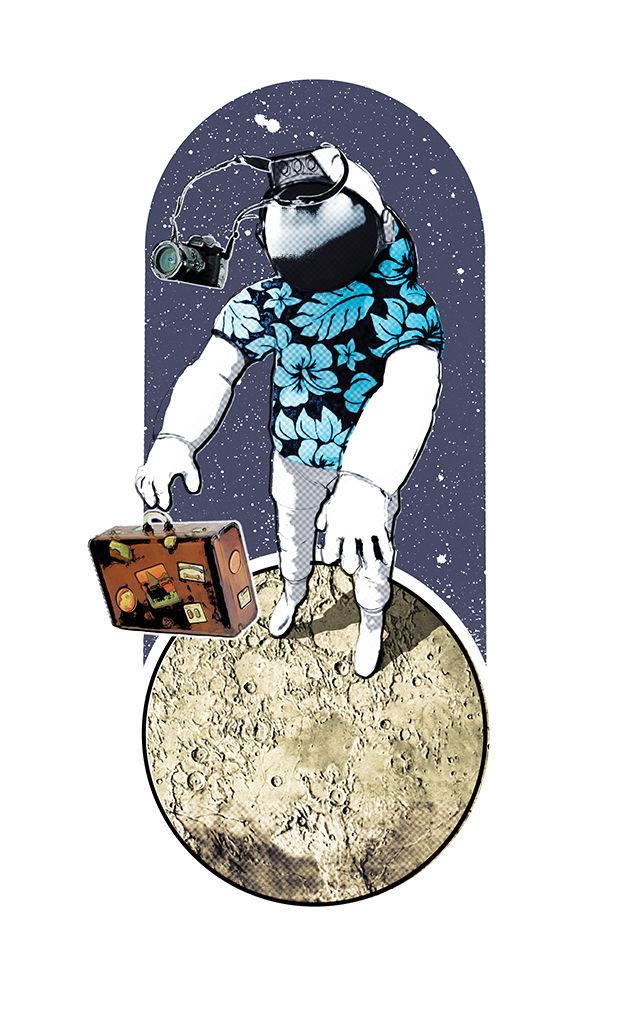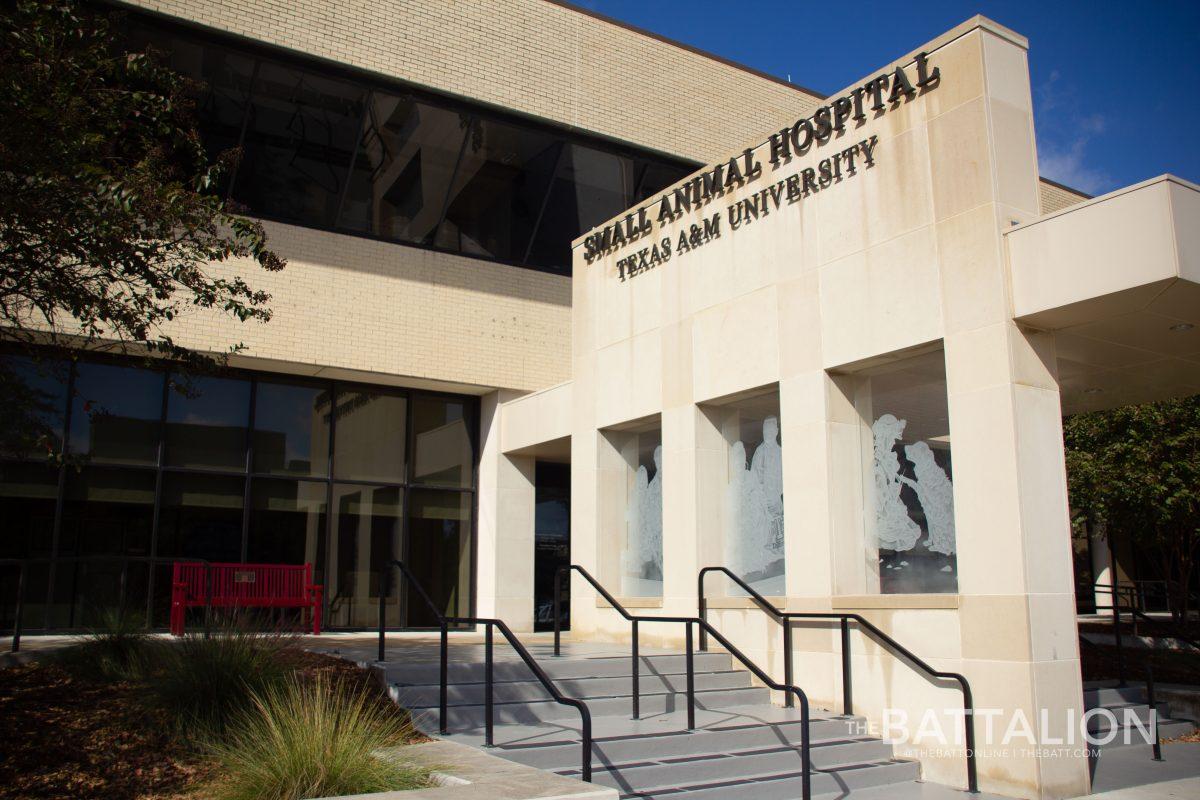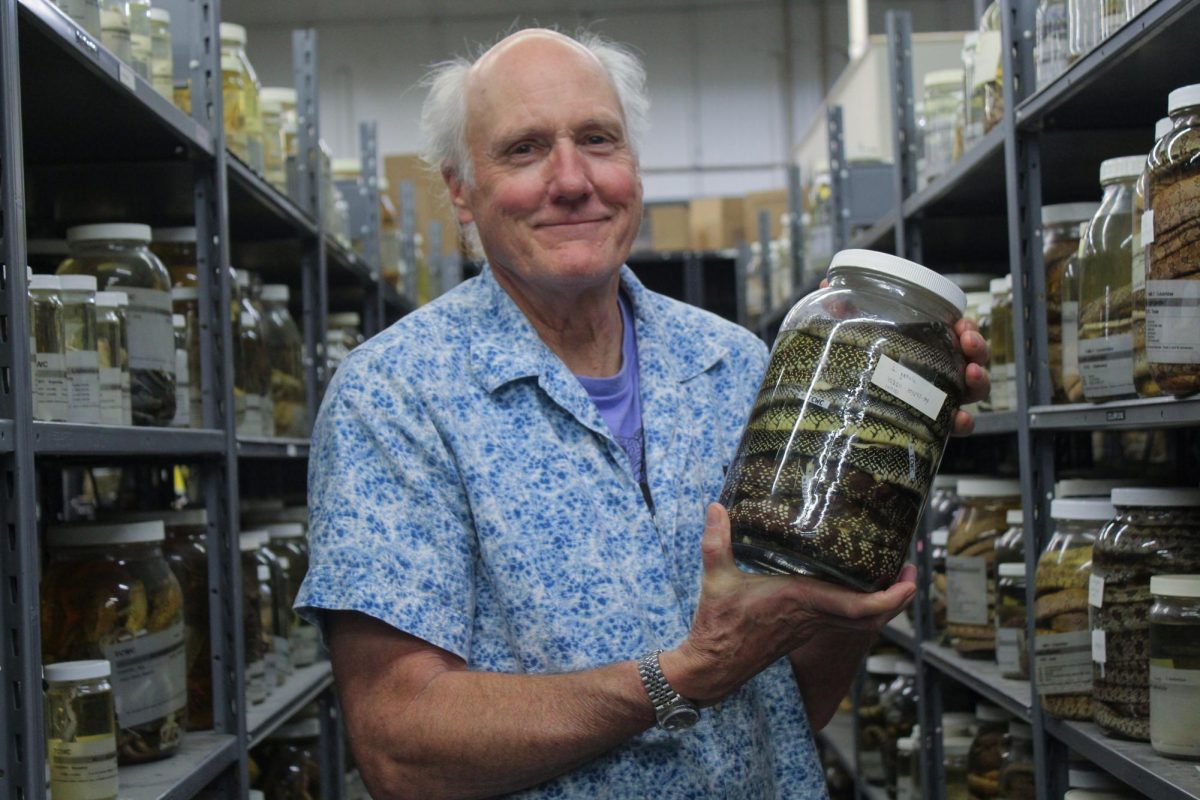As SpaceX continues to push the horizon of space exploration — most recently with its ambitious goal to fly private citizens around the Moon — space tourism is an up-and-coming reality.
Since the new year, there has been exciting news about space exploration. A nearby collection of potentially habitable planets was discovered and SpaceX announced that it would send two private citizens around the Moon. As the world population increases, the depletion of resources could necessitate further human expansion, not outward, but upward into space.
Greg Chamitoff, former astronaut and professor of aerospace engineering, said space tourism is our future and that it is “the first step” into a long journey ahead of us that will revolutionize air travel.
“In decades from now I see the revolution for world travel to look like flight that goes up to intermediate transportation hubs in orbit,” Chamitoff said. “You’d launch a vehicle from wherever you are. You go up to an orbiting space port. You get off your launch vehicle hang around for a little bit, get on your descending vehicle at the right time and you land where ever you want to go.”
Chamitoff said once a method for space tourism becomes commercially available, humans could start to see the use of resources from space on Earth, and it will push forward humanity’s development to other planets.
“I think it’s going to kick us into gear with being able to become a species that lives all around our solar system and not just in one place,” Chamitoff said.
Jennifer Marshall, physics and astronomy assistant professor, said it’s exciting to watch the development of the space industry, especially the vision for Mars.
“I think this is the only plausible way to form a colony on the moon or a colony on mars or whatever,” Marshall said. “I don’t think that any government has enough money to fund this effort. If private people have the money to fund it then I think that’s great.”
Traveling in space is risky, and there are many unanswered questions luring in the science community. Nicholas Suntzeff, physics and astronomy professor, said there are many risks that need to be considered when going into space, but the main problems tourists would need to consider are subjects like radiation and space junk, not pollution to the upper atmosphere or global cooling.
“Going into space is not just yet another exciting thing to do,” Suntzeff said. “It’s getting pretty crowded around the earth’s orbit, and it’s not at this point yet but it’s close to getting dangerous to go into orbit around the earth, because there is so much space junk.”
Another concern Suntzeff expressed was that there is nothing in place now controlling the future of space tourism — which is susceptible to add more space junk — possibly through advertisement.
“Imagine you could launch a satellite that would then spread out a Mylar sheet that’s a kilometer across, and on that sheet was some advertisement like Coca Cola or Chick-fil-a or something,” Suntzeff said. “That thing would be going around the Earth every 90 minutes if it’s in the Earth’s orbit. And near sunrise and sunset it would be able to reflect light from the sun so we’d be able to see it very clearly. So now you have this bright object in space that’s pointed down towards you which is advertising something. Right now there is nothing stopping anyone from doing that.”
Suntzeff said the sky does not belong to one specific person and humans need to think about in it a different light.
“It’s like the sky is everyone’s heritage,” Suntzeff said. “Whether you’re from a rural community in Australia or New York City or a community in Africa, the sky is the heritage of everyone.”
Space tourism now more possible than ever, experts say
March 21, 2017
Photo by Graphic by Sydney Farris
SpaceX recently announced its goal to fly two private citizens around the Moon.
0
Donate to The Battalion
$2790
$5000
Contributed
Our Goal
Your donation will support the student journalists of Texas A&M University - College Station. Your contribution will allow us to purchase equipment and cover our annual website hosting costs, in addition to paying freelance staffers for their work, travel costs for coverage and more!
More to Discover










